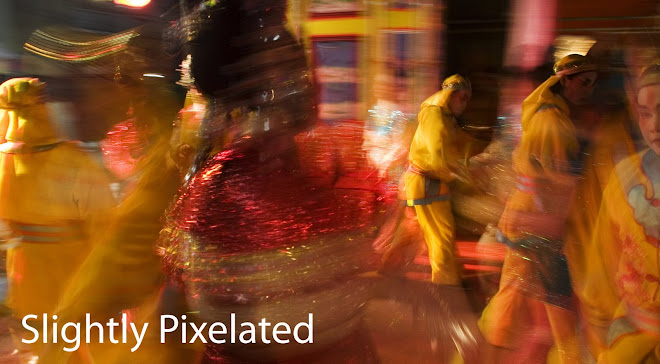
It can't buy you love but it might just get you a term or two in office.
With a healthy enough bank balance you can buy an audience for your speeches, a mob for your rallies, some star political players for your party and even some valuable votes at election time.
In the armoury of the successful Thai politician a plentiful supply of cash has long been one of the surest routes to power. So it surprised few when one of Thailand's richest men, Thaksin Shinawatra, converted his corporate clout into political power.
But as Thai politics has evolved and as Thailand's elites continue to tussle for preeminence in this country's increasingly chaotic democracy, a new political weapon of choice has emerged: information.
Radio stations and satellite TV channels have sprouted like 'virtual' weeds, clogging the airwaves with endless streams of what at best might be called partisan analysis and at worst slander and propaganda.
Demonstrations are broadcast around the clock, transforming politics into a reality TV show, where viewers are kept entertained with a titillating mish-mash of irreverent jibes, passionate diatribe, drama, invective, violence and a flood of unverified affirmations passed off as facts.
If cash is the blunt cudgel, effective but unrefined, information is a much more subtle weapon: it contains a message, carries meaning and can inspire.
Television, perhaps the most powerful tool of all, has become so ubiquitous that news spreads nationwide in seconds. Information shared, as social networking has proved, creates bonds and builds constituencies.
Thailand's information wars began in earnest even before Thaksin's ouster in 2006. In the weeks preceding the September coup d'etat, Thaksin staged TV appearances in rural villages where he would act out the role of the earnest, genuinely concerned patriarch reaching down to the grass roots.
These images, of Thaksin meeting and greeting in the countryside, sent a powerful message: they said "I care", "I am willing to respect you by moving from the ivory towers of the capital to the reality of the countryside."
They also marked a departure from the plot that Thailand's usually predictable political dramas had hitherto followed - illustrating for the first time that rural voters, long seen as passive even disinterested political actors, were ready to play a more central role.
Such images, combined with populist demagoguery and, yes, plenty of cash opened a new front in the battle for power and eventually delivered to Thaksin the kind of heartfelt support that would probably still win him a majority today.
If money can't buy a politician love perhaps a few salesman-like speeches and some televised glad handing can. Many of Thaksin's most loyal supporters say they genuinely 'love' him, and are willing to lend him the kind of support that goes beyond paid attendance at rallies.
Subtly, but in a way that was not lost on many Thais, Thaksin even began to use imagery and symbolism normally reserved for the monarchy - sending confusing and threatening (to the establishment) signals; while cleverly planting subliminal perceptions of a caring, humble leader in the public consciousness.
Technology has of course played a vital role in opening up the information front. Thaksin was responsible for launching the satellites that have become an epicenter in the current crisis. Red shirt demonstrators have focused some of their most forceful protests on the Lat Lum Kaew Thaicom earth station in an effort to ensure that their People's TV channel (PTV) continues to broadcast.
The government, aware that their ability to stem support for the red shirts depends partly on shutting down the flow of information, made closing PTV its most significant move after declaring a State of Emergency.
Yet despite having a young and telegenic leader in Prime Minister Aphisit Vejajiva, the government still seems to have understood little about the power of information and even less about projecting a positive image.
Government broadcasts contrast sharply with those of the red shirts - whose leaders appear passionate and dress in traditional, informal garb.
Grim-faced, dressed in a black suit and seated against a bland expanse of cheap brown ply-wood, Aphisit addresses the nation in the stern, clipped tones of a discontented teacher as he admonishes his opponents and re-affirms the power of the State.
The Prime Minister's televised speeches look more like a broadcast from a communist regime of 1980s than those of a modern state appealing to its people in a time of crisis in 2010.
If the current government and its military backers have understood the importance of information it would seem that they have not yet mastered the subtler art of deploying the tools of modern communications to win the hearts and minds of Thailand's majority.

3 comments:
Yes, i agree, it is above all a media. Facts are not so importants, but what is important is what is shown on TV and how it is presented. A black hooded man with a gun can be alternativy a disguised soldier or a rogue demonstrator. People will believe what they want to believe.
Yes, i agree, it is above all a media war. Facts are not so important, but what is important is what is shown on TV and how it is presented. A black hooded man with a gun can be alternativly a disguised soldier or a rogue demonstrator. People will believe what they want to believe.
What a good example...in this information war, people project their beliefs onto the images they view.
Post a Comment